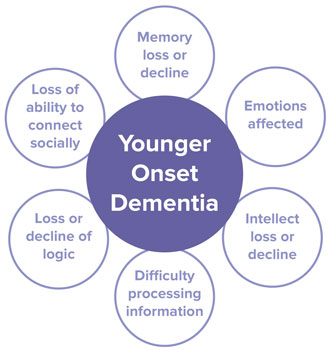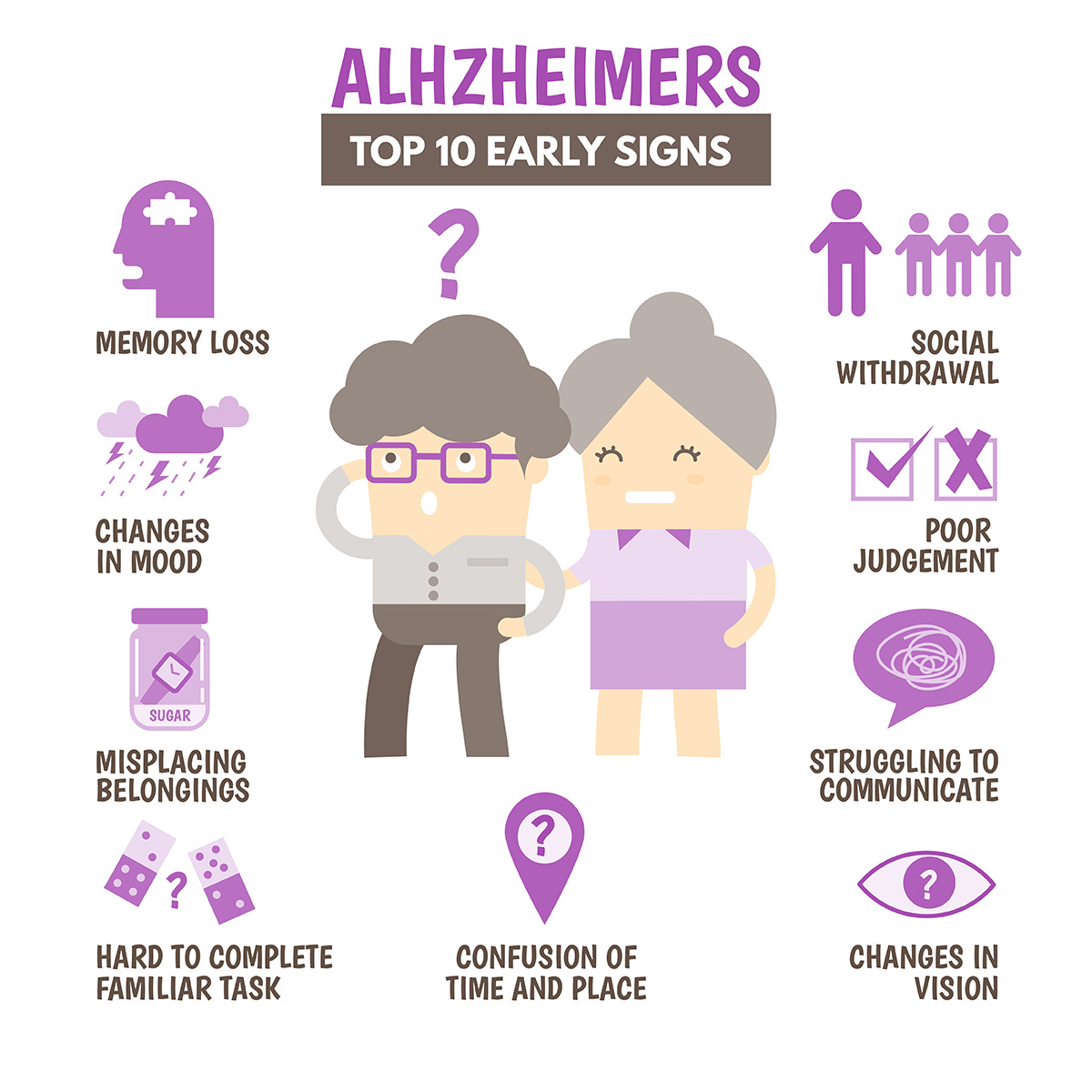5 Essential Facts You Should Know About Frontotemporal Dementia
5 Essential Facts You Should Know About Frontotemporal Dementia
Blog Article
The Importance of Early Discovery and Diagnosis in Dementia Situations
When it comes to mental deterioration, recognizing the signs early can make a considerable difference. You may ask yourself just how prompt interventions can alter the course of the condition. Early discovery not just opens up treatment alternatives but likewise improves the top quality of life for individuals and their households. Recognizing the nuances of dementia can assist you determine signs and symptoms quicker. What should you know about the steps to take when a medical diagnosis is made?
Understanding Dementia: Types and Symptoms

Usual symptoms include amnesia, trouble with interaction, and changes in state of mind or behavior. You might notice someone dealing with familiar jobs or coming to be confused about time and area. Do not be reluctant to seek help if you see these indicators in on your own or an enjoyed one. Early acknowledgment of dementia symptoms can considerably enhance the overall management of the condition, making it essential to stay educated. Recognizing these distinctions empowers you to act quickly and efficiently when required.
The Influence of Very Early Medical Diagnosis on Therapy Choices
Acknowledging the indicators of mental deterioration early on can noticeably affect the treatment choices readily available. When you seek a diagnosis without delay, you open the door to a variety of therapies that can reduce the disease's progression.
Furthermore, very early diagnosis allows you to check out non-pharmaceutical strategies, such as cognitive treatments and lifestyle changes, that can improve cognitive function. You'll have the possibility to produce an individualized treatment strategy that resolves your specific needs and preferences. This proactive method not only equips you however additionally aids in taking care of possible coexisting conditions. Remember, the faster you act, the much more options you'll have to keep your lifestyle and independence for as long as possible.
Exactly How Early Detection Can Boost Lifestyle
Very early detection of dementia not only opens therapy choices however additionally substantially boosts your lifestyle. When you recognize symptoms early, you can start to manage them effectively, enabling you to preserve a feeling of freedom and control over your day-to-day activities. Early medical diagnosis indicates you can access therapies and lifestyle adjustments tailored to your demands, assisting you cope with challenges in an extra structured method.
In addition, recognizing your problem empowers you to make informed choices about your future. You can prepare for the modifications ahead, making certain that your personal goals and preferences are focused on. This aggressive method fosters a complacency, reducing stress and anxiety for both you and your enjoyed ones.
Moreover, participating in early treatments may boost your cognitive function and emotional health, allowing you to enjoy significant connections and experiences. Simply put, early detection isn't practically managing signs and symptoms; it has to do with enhancing your life.
The Duty of Family and Caregivers in Very Early Identification

By sharing your problems, you aid start very early evaluations, which can lead to prompt diagnosis and treatment. Furthermore, your support can encourage loved ones to look for assistance, minimizing stigma and worry connected with mental deterioration.
Moreover, maintaining open lines of interaction within the household cultivates a supportive environment. Fall Risk. Your positive participation not just help in determining the issue but additionally helps in preparing for future treatment, guaranteeing that your enjoyed one gets the very best feasible assistance as their needs advance
Typical Misunderstandings Regarding Mental Deterioration
Family members participants and caretakers commonly face difficulties not just in identifying indicators of dementia however additionally in going across the misconceptions surrounding the problem. While age is a considerable danger element, younger individuals can additionally develop mental deterioration. Some individuals believe dementia just influences memory, but it can likewise affect actions, state of mind, and reasoning.
Devices and Assessments for Very Early Detection
When it pertains to very early discovery of dementia, comprehending cognitive evaluations and screening devices is important. These tools can assist you recognize possible concerns before they rise. By familiarizing on your own with these evaluations, you can play an energetic role in keeping an eye on cognitive health and wellness.
Cognitive Analyses Summary
Cognitive analyses play an important function in the early discovery of mental deterioration, as they aid identify subtle modifications in memory, assuming, and thinking skills. These analyses typically consist of a series of standard examinations that examine numerous cognitive functions. By engaging in these analyses, you can gain valuable insights right into your cognitive wellness. Usual analyses might include jobs associated with attention, language, analytical, and recall. They're usually administered by healthcare experts trained to interpret the outcomes properly. Early identification through these tools can bring about timely interventions, enhancing results and lifestyle. Looking for out these assessments can be an aggressive action toward understanding and handling your brain check my blog health properly. if you discover any kind of cognitive modifications.
Screening Tools Usage
Using effective screening devices is vital for the very early discovery of dementia, as they provide a structured method to evaluating cognitive health and wellness. When you utilize these tools, you can identify prospective problems before they escalate. Common assessments, like the Mini-Mental State Assessment (MMSE) or the Montreal Cognitive Analysis (MoCA), aid identify memory deficiencies and other cognitive problems. Routine testings permit you to track changes over time, making it simpler to review interest in doctor. By integrating these devices right into routine examinations, you empower on your own and your loved ones to seek prompt interventions. Bear in mind, early detection can significantly affect treatment alternatives and lifestyle, so don't take click this too lightly the power of positive screening.
Steps to Take After a Medical Diagnosis: Planning for the Future
After getting a mental deterioration medical diagnosis, it's vital to begin preparing for the future. You'll intend to establish care plans that fit your demands while also addressing monetary and lawful preparations. Taking these steps early can aid assure you and your liked ones feel more protected moving on.
Developing Treatment Strategies

Lawful and Economic Prep work
As you browse your treatment strategy, it's essential to consider the economic and legal facets of coping with dementia. Beginning by designating a power of lawyer to manage your monetary decisions if you're unable to do so. This assures your desires are appreciated and can ease the problem on your liked ones. Next off, consider producing a living will certainly to describe your medical care preferences. Evaluation your insurance plan and understand what's covered, particularly lasting treatment choices. It's likewise important to talk to a financial coordinator acquainted with dementia-related issues. They can assist you handle your assets and strategy for future expenditures. Taking these aggressive steps can give satisfaction and ensure your Click Here requirements are met as your problem proceeds.
Regularly Asked Inquiries
What Are the Risk Variables for Creating Dementia?
You might encounter higher threats for creating dementia if you have a family members history, cardio concerns, diabetes mellitus, smoking practices, or low education and learning levels. Staying active emotionally and physically can help minimize these risks significantly.
Can Way Of Life Changes Delay or prevent Mental deterioration?
Yes, making way of living adjustments can assist avoid or postpone mental deterioration. By remaining active, consuming a balanced diet regimen, engaging in social activities, and testing your mind, you're increasing your cognitive wellness and reducing threat variables.
Exactly How Does Mental Deterioration Differ From Typical Aging?
Mental deterioration involves cognitive decrease that hinders life, while typical aging generally does not (Early Onset Dementia). You might see memory lapses as you age, but dementia signs and symptoms, like complication and trouble with interaction, are more severe and turbulent
Are There Any Support System for Dementia Caregivers?
Yes, there are support groups for mental deterioration caretakers. You can find on the internet or regional groups with companies like the Alzheimer's Organization. Linking with others in comparable scenarios can provide useful emotional support and useful suggestions.
What Lawful Files Should I Prepare After a Mental Deterioration Medical Diagnosis?
After a mental deterioration medical diagnosis, you must prepare important lawful files like a power of lawyer, health care proxy, and living will. These help assure your desires are respected and provide assistance for future clinical and economic decisions.
The Importance of Early Discovery and Diagnosis in Mental Deterioration Situations
Alzheimer's illness is the most common kind, however you'll also run into vascular mental deterioration, Lewy body dementia, and frontotemporal mental deterioration.When it comes to early discovery of mental deterioration, comprehending cognitive evaluations and screening tools is important.Cognitive evaluations play a crucial function in the early detection of mental deterioration, as they assist identify subtle adjustments in memory, thinking, and reasoning abilities.Making use of efficient testing devices is crucial for the very early detection of dementia, as they use an organized approach to evaluating cognitive health.
Report this page